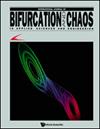Deep Learning for Nonlinear Characterization of Electrostatic Vibrating Beam MEMS
IF 2.3
4区 数学
Q2 MATHEMATICS, INTERDISCIPLINARY APPLICATIONS
引用次数: 0
Abstract
In this paper, we integrate deep learning techniques with the motion-induced current method to analyze the nonlinear response of electrostatic MEMS resonators consisting of vibrating beams under electrostatic actuation. The motion-induced current method relies on a transduction mechanism that converts the motion of the resonator to a current signal. The third harmonic of the induced current captures the motion characteristics of the MEMS resonator. We conduct electrical measurements on a MEMS device comprising a microcantilever beam subject to electrostatic actuation using a side electrode. The electrical measurements are verified against their optical counterparts to confirm the suitability of the motion-induced current method to analyze the motion of the MEMS resonator. Next, we develop a model by combining deep learning methods with experimental data aiming to detect the nonlinear dynamics associated with the motion of the resonator when subjected to large actuation voltages. The results demonstrate high prediction accuracy of the data-driven model in terms of capturing the peak resonance, the onset of bifurcation, the occurrence hysteresis and its bandwidth.深度学习用于静电振动光束微机电系统的非线性表征
在本文中,我们将深度学习技术与运动诱导电流法相结合,分析了由振动梁组成的静电 MEMS 谐振器在静电驱动下的非线性响应。运动诱导电流法依赖于一种将谐振器运动转换为电流信号的转换机制。感应电流的三次谐波可以捕捉到 MEMS 谐振器的运动特性。我们对 MEMS 器件进行了电学测量,该器件包括一个微悬臂梁,使用侧电极进行静电驱动。我们将电学测量结果与光学测量结果进行了对比验证,以确认运动诱导电流法是否适用于分析 MEMS 谐振器的运动。接下来,我们将深度学习方法与实验数据相结合,建立了一个模型,旨在检测谐振器在承受大驱动电压时与运动相关的非线性动态。结果表明,数据驱动模型在捕捉峰值共振、分叉开始、发生滞后及其带宽方面具有很高的预测精度。
本文章由计算机程序翻译,如有差异,请以英文原文为准。
求助全文
约1分钟内获得全文
求助全文
来源期刊
CiteScore
4.10
自引率
13.60%
发文量
237
审稿时长
2-4 weeks
期刊介绍:
The International Journal of Bifurcation and Chaos is widely regarded as a leading journal in the exciting fields of chaos theory and nonlinear science. Represented by an international editorial board comprising top researchers from a wide variety of disciplines, it is setting high standards in scientific and production quality. The journal has been reputedly acclaimed by the scientific community around the world, and has featured many important papers by leading researchers from various areas of applied sciences and engineering.
The discipline of chaos theory has created a universal paradigm, a scientific parlance, and a mathematical tool for grappling with complex dynamical phenomena. In every field of applied sciences (astronomy, atmospheric sciences, biology, chemistry, economics, geophysics, life and medical sciences, physics, social sciences, ecology, etc.) and engineering (aerospace, chemical, electronic, civil, computer, information, mechanical, software, telecommunication, etc.), the local and global manifestations of chaos and bifurcation have burst forth in an unprecedented universality, linking scientists heretofore unfamiliar with one another''s fields, and offering an opportunity to reshape our grasp of reality.

 求助内容:
求助内容: 应助结果提醒方式:
应助结果提醒方式:


